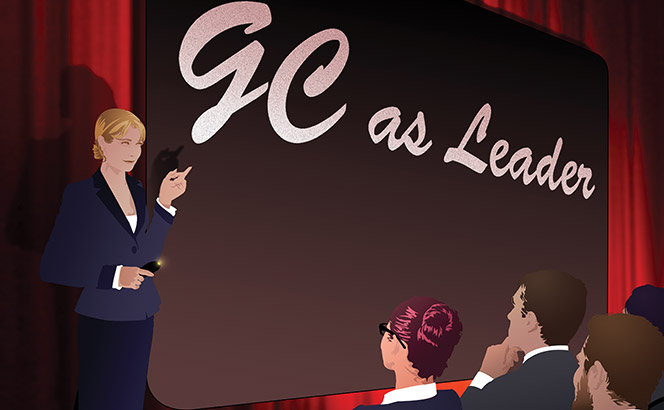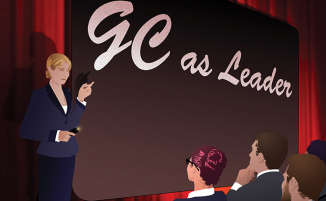To be a leader as an in-house lawyer today is to be faced with a bewildering array of ideas, strategies and influences. Reports are written with grim regularity, it is impossible to read them all. Conferences are organised with grim regularity, it is impossible to attend them all. Consultants always have the next great idea with grim regularity, it is impossible to take a sharp stick and poke them all.
The quality of leadership in-house is nothing like as strong as the quality of the legal work our in-house lawyers do or the quality of the people who are the in-house counsel. Collectively we need to get better at leadership.
Let me be clear that I am not saying in-house lawyers are bad leaders; I am saying we are not fulfilling our potential. I see great potential and talent every day. My concern is that in-house lawyers are not fulfilling the promise of their talent and we all need to get better at leadership if we are to make the difference we ought to.
I regularly see three diversionary pre-occupations for many leaders in in-house roles. They deflect from purpose and their ability to influence.
1. The first is that somewhere, someone has ‘cracked it’. They have the tech, the metrics, and the perfect model all in perfect harmony with the perfect hierarchy and perfect CEO relationship. If we could find them we will all have found the elixir to eternal legal nirvana.
2. The second is a needy fixation to assert that the general counsel is a Very Important Role! To adopt another needy leader’s approach – There is a lot of FAKE NEWS, which is SAD, but the GC is always doing a great job. A GREAT JOB!
3. Third there is often a self-conscious (and over-promised) assertion that legal teams are business teams. I do not criticise the desire to be accessible, informed, relevant and cheerful, but I also want legal teams to define and manage legal, regulatory and compliance boundaries. The team has a critical ‘check and balance’ role that must be visible.
We should move away from these diversionary ideas with haste. No-one has cracked it. Trying to understand what other teams do is natural, but when companies can employ one lawyer or hundreds, there isn’t a template. The key driver for strategy, operating models and resourcing needs is summed up in one word: purpose. Simply: ‘What are you there to do? Why you? Why now? …And to what effect?’ If leaders spent more of their time defining their team’s purpose and less trying to benchmark what others do, they would be better leaders.
Second, I am not convinced that the role of general counsel is as important as many would like to hope. Many executives are often at a loss to describe the value of an in-house team. They tend to see things in a more binary way – it is a simple cost and convenience equation over using a law firm. My wish is for in-house leaders to spend less time asserting value as a self-evident truth and more showing how their contribution can be influential.
Value, therefore, is a question of influence and impact based on implementing purpose. The questions I am interested to explore in this context include:
- What has been the team’s significant, distinct and visible contribution to the success of the business?
- What has been the team’s significant, distinct and visible contribution to the careers of colleagues in the legal team?
- What has been the team’s significant, distinct and visible contribution to enhance the sustainable positive impact of the business on customers, suppliers, shareholders and communities?
Third, leadership must not be just about fitting-in as a good business partner. A degree of separateness is essential for the success of the role. Blurring the lines between what is expedient and what is right; between what is sustainable and only short term; and between best practice and what is a ‘business decision’, are all everyday occurrences. These occurrences, however, must be shaped by a context which identifies and respects different roles and boundaries. Artificially conflating lawyers as part of the business potentially messes with accountability and doesn’t enhance it. Overweening desire to facilitate the will of the business is a potentially hubristic risk for a GC as they are for any other employee.
Of course, lawyers should be deeply integrated, passionate communicators, and enthused for the products and services they are helping to shape and make a success; but they must also be advocates for their wider boundary-setting purpose too.
Leadership becomes so much more than charisma, power or authority. Leadership is about establishing clarity of purpose with accountability to deliver a contribution that supports that purpose. To do this leaders must also develop both infrastructure and people to improve the team’s opportunity to deliver that contribution and do so respecting every individual’s career and well-being. Now, more than ever, is the time to deliver.
Take care.
Paul Gilbert is chief executive of LBC Wise Counsel. To read his blog click here











